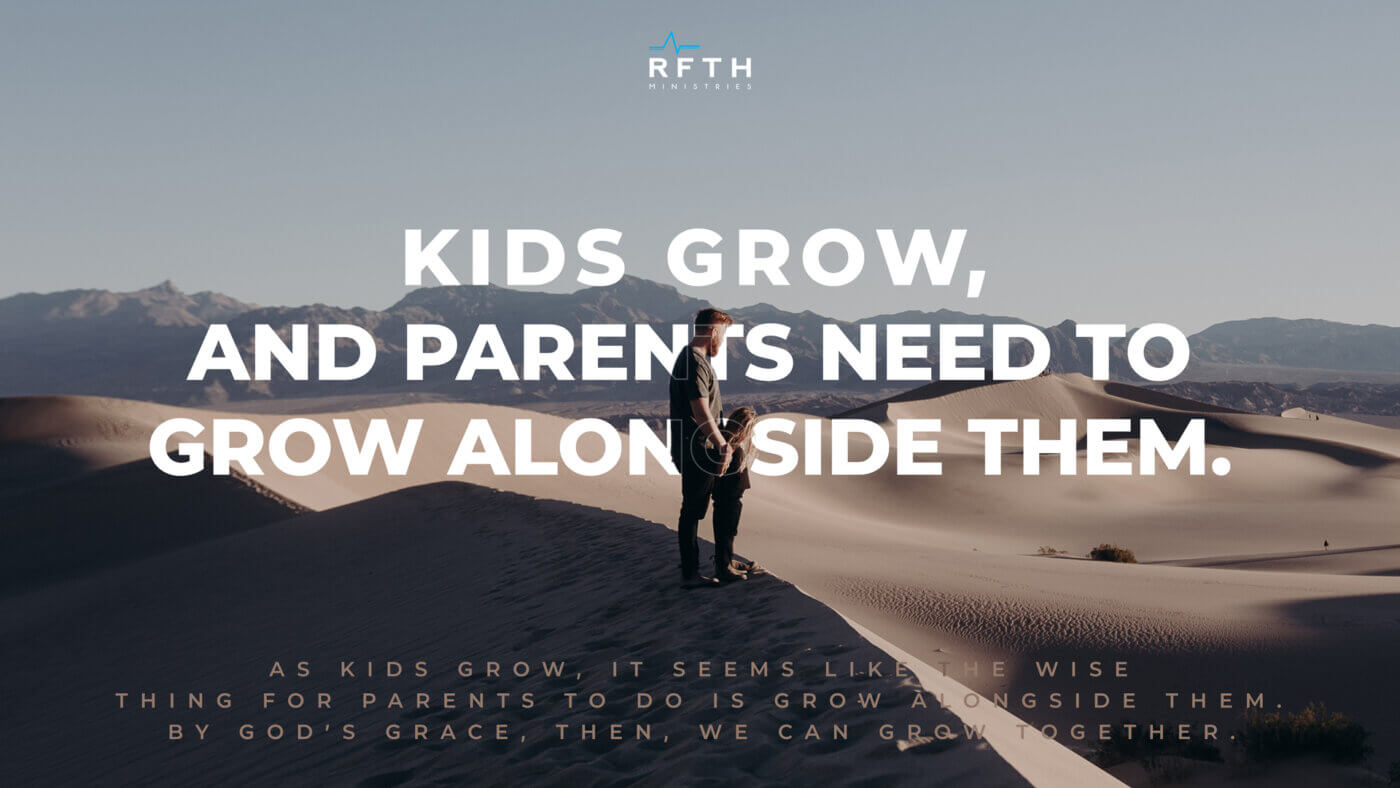
“Train up a child in the way he should go; even when he is old, he will not depart from it.” Proverbs 22:6
For my wife and me, this past year has represented an acceleration in time.
Not that time has gone by any faster, of course, but rather that it’s felt that way. This was the year when both of us realized the true ages of our children.
That sounds silly, but how can you not recognize how old your kids are? After all, they have a birthday every year. You celebrate it. You know it. And you know absolutely with your mind how old each of them is. At the same time, though, it’s possible that as a parent, you can just keep parenting your children the same way you did when they were younger.
By way of illustration, consider this: You would not keep feeding your kids baby food when they are 12 and 13 years old, right? Of course not.
And yet many of us never consciously adapt and grow in our parenting at the same pace as our children age. We find ourselves stuck in the same parenting dynamic we were in when they were young because that’s what we know. It’s what we’re comfortable with. And it worked reasonably well then.
One of the parenting challenges, then, is growing with your children. To that end, we have found it helpful to think about the different stages of parenting like the following. (Keep in mind, though, that I’m not a therapist. I’m not an educational expert. I’m a dad – just a regular, old dad trying to figure this thing out one day at a time.)
Nevertheless, thinking in these categories might be helpful to you as well:
1. Protector
This is where everyone starts. When you first have children, your basic role as a parent is to keep them from harm. You control every part of their lives with the end of making sure they are safe, healthy, and growing, from what they eat, to what they watch, to what they do, to the people they interact with. You, as a parent, are their protector. And when you think of it like that, it gives you much freedom.
That means you don’t have to necessarily concern yourself with teaching them everything in the world. It’s not wrong, of course, to try and help them learn – we should do that. But our primary role is that of protector above all else.
2. Teacher
But then things change. It’s not that we stop protecting our children; we certainly still do. And we certainly still have a good deal of control over them. But our mindset at some point has to shift from being primarily concerned with protecting them to being primarily concerned about teaching them. But the teaching here is really still from a directive standpoint. We are teaching them good and bad, right and wrong, this way and that. In other words, our teaching is about the world’s facts and life as we know it.
We are helping set a foundation for truth; we are forming a worldview in our children. We are reading them the Bible, talking to them about what it means, and helping them understand who God is and their need for grace.
3. Coach
But then things change again, and this is the stage we are in with two of our kids right now. We are moving from being the teacher who has all the answers and dispenses information to the students to be the coach. The coach is still the one who is designing the game plan but no longer the one who actually implements and executes it. In this stage, we no longer teach our children what to think; we show them how to think for themselves.
4. Cheerleader
And then things change again. This is rapidly moving toward us. It’s the moment when we move from being a coach to just being the cheerleader. This is when our children are making decisions on their own – deciding what to do with their time, their money, their talents – their everything. And you hope and pray you’ve done what you could to teach and protect them so they can make decisions independently.
Kids grow. And as they do, it seems like the wise thing for parents to do is grow alongside them. By God’s grace, then, we can grow together.
Written by Michael Kelley, Guest Contributor
To read more of Michael’s writing, check out his daily blog, “Forward Progress.” http://michaelkelley.co/






